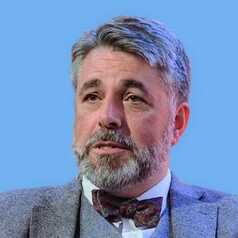
Alan Woodward
Professor, Department of Computer Science, University of Surrey
Alan began as a physicist. However, he developed an interest in computing early on through signal processing for gamma ray burst detectors, and so switched to engineering after his BSc. His post graduate research at the Institute of Sound and Vibration Research (ISVR), University of Southampton, was in adaptive filtering, and novel methods of recovering corrupted signals. Alan also worked on novel methods of noise cancellation, both passive and active.
After leaving the ISVR Alan worked for the UK government for many years and subsequently provided advice for some years. He has particular expertise in, and continues to conduct research into, cyber security, covert communications, forensic computing and image/signal processing. Alan has been involved in some of the most significant advances in computer technology which have seen him elected as a Fellow and chartered member of the British Computer Society, Institute of Physics and the Royal Statistical Society.
In addition to his academic and government work, Alan has run businesses focussed on various aspects of Information Technology (IT). In 2000 Alan was pivotal in the flotation of Charteris plc on the London Stock Exchange. He remained a director until 2008 at which point he began to focus back on his academic interests. Alan continues to be a director on businesses involved in IT.
Although Alan has been at the leading edge of technology development for many years, he is primarily a particularly good communicator. He is known for his ability to communicate complex ideas in a simple, yet passionate manner. He not only publishes in the academic and trade journals but has articles in the national press and comments on TV and radio. Despite the length of his experience, his hands-on ability with emerging technologies contributes significantly to the respect he is repeatedly shown when he leads teams where technology is involved.
Less ![]()

Alan C Oldham
Graduate Student, International Centre for Olympic Studies, Western University
Alan Oldham completed his undergraduate degree at McMaster University, Hamilton, Canada in 2007 and attended teacher's college at the University of Toronto, graduating in 2009. Since then he has worked in sport as a professional coach and also in communications as a regular contributor of content for World Rowing. In 2021 Alan began graduate school in philosophy of sport (focusing on sport ethics) under the supervision of Dr. Angela Schneider at Western University, London, Canada. He has a keen interest both professionally and academically in international and Olympic sport, the obligations of athletes, coaches and administrators, and the ethics of sport categorization.
Less ![]()

Alana Gall
Postdoctoral Research Fellow, National Centre for Naturopathic Medicine, Faculty of Health, Southern Cross University
Dr Alana Gall is a proud Truwulway woman, a Pakana (Tasmanian Aboriginal) from the north-east coast of Lutruwita (Tasmania, Australia). Dr Gall is passionate about Indigenous peoples' holistic health and wellbeing, globally. She believes that the wellbeing and identity of Indigenous peoples are strongly centred around strong connections to Country/land, culture, spirituality and each other.
Dr Gall is a Postdoctoral Research Fellow, in the National Centre for Naturopathic Medicine, at Southern Cross University, and an Honorary Research Fellow at both the University of Queensland and Menzies School of Health Research. She is Vice Chair of the World Federation of Public Health Associations, Indigenous Working Group, and the Vice President (First Nations) at the Public Health Association of Australia. Dr Gall is also the Indigenous Traditional Medicines representative in the TCIH Coordination Council for the TCIH Coalition of The People's Declaration for Traditional, Complementary and Integrative Healthcare. At Southern Cross University, Dr Gall leads a research program that centres around First Nations Australians Traditional Medicines, with the aims of protecting and preserving these medicines for future generations, and improving accessibility for all First Nations communities across Australia.
Dr Gall has over a decade of experience in research, research translation, community engagement, health education and a background in Nutritional Medicine. She has an extensive and broad knowledge in First Nations health and wellbeing; First Nations Traditional Medicines; qualitative, Indigenous and decolonising methodologies and methods (including co-design methods/methodology); PROMs/PREMs measure development, and; systematic, comprehensive and policy reviews. Dr Gall pioneered the use of individual yarns with a think-aloud component, called the ‘think-aloud yarn’, and co-developed the Key Principles to Co-Design with First Nations peoples, which have informed the development of Cancer Australia's Australian Cancer Plan and will underpin its implementation (p.29, Cancer Australia Annual Report 2022-23).
Less ![]()

Alana Thomson
Senior Lecturer in Sport Management, La Trobe University
Dr Alana Thomson is Senior Lecturer in the Department of Management and Marketing, La Trobe Business School.
Alana has previously held academic appointments at Federation University and Griffith University.
Alana received her doctorate from the University of Technology Sydney in 2015, with her thesis entitled The Influence of an Interorganisational Network Associated with a Large-Scale Sport Event on Sport Development Legacies: A Case Study of the Sydney 2009 World Masters Games.
Alana’s research interests include sport event legacies and women’s participation in sport. Her research has been published in leading sport management journals including European Sport Management Quarterly, Sport Management Review and the Journal of Sport Management.
Alana has also developed an impressive learning and teaching portfolio in both teaching and curriculum design with a keen focus on authentic pedagogies and digital literacy. Alana also has a strong track record of industry engagement in both teaching and research.
Alana is a current Board Member of the Sport Management Association of Australia and New Zealand (SMAANZ).
Less ![]()

Alana L. Riso
Ph.D. Student in Clinical Psychology, Binghamton University, State University of New York
Less ![]()
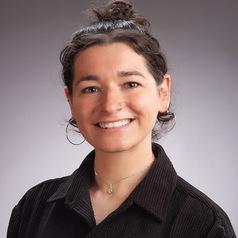
Alanna Alevropoulos-Borrill
Postdoctoral Research Fellow, Te Herenga Waka — Victoria University of Wellington
Less ![]()

Alanna Cant
Lecturer in Social Anthropology, University of Reading
I am a Lecturer in Social Anthropology in the Department of Archaeology at the University of Reading. My research looks at the politics and aesthetics of material culture in Mexico and the United Kingdom, especially the topics of art production, cultural tourism and religious heritage. I completed my PhD at the London School of Economics in 2012, after which I held a postdoctoral research fellowship at the University of Oslo and a Marie Skłodowska-Curie fellowship at the University of Kent, as well as visiting teaching positions at Martin Luther University Halle-Wittenberg and the University of Cambridge.
Less ![]()
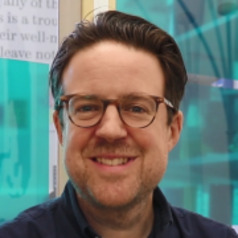
Alasdair Cochrane
Professor of Political Theory, University of Sheffield
Alasdair Cochrane’s main research interests include: contemporary political theory, rights theory, human rights, environmental ethics, animal ethics and bioethics.
Less ![]()


Alastair Bonnett
Professor of Geography, Newcastle University
Alastair Bonnett is a professor of social geography at Newcastle University and has been researching and teaching the international politics and geography of anti-racism, white identities, and racism for over thirty years. His books include: 'Radicalism, Anti-racism and Representation' (Routledge, 1993); 'White Identities: Historical and International Perspectives' (Pearson Education, 2000); 'Anti-racism' (Routledge, 2000); 'The Idea of the West: Culture, Politics and History' (London, Palgrave, 2004) (Arabic translation, 2017). His most recent book on racism is ‘Multiracism: Rethinking Racism in Global Context’ (Polity, 2022). He also writes about the politics of nostalgia and 'off the map' places, such as in 'The Geography of Nostalgia: Global and Local Perspectives on Modernity and Loss' (Routledge, 2017) and ‘Left in the Past: Radicalism and the Politics of Nostalgia’ (Continuum, 2010), Of his travel books the most is 'The Age of Islands: In Search of New and Disappearing Islands' (Atlantic, 2021). Alastair’s books have been widely translated (19 languages).
Less ![]()
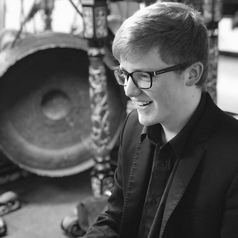
Alastair Comery
PhD Candidate, Sociology, Centre for Death and Society, University of Bath
My PhD is entitled, A Gradual Farewell with Music. I will marry sociological and musicological paradigms to explore the embodied experience of music in people’s experiences of loss. To capture the dynamic role of music in bereaved people’s ongoing lives, I will focus on their interactions with music both during the dying process of their loved one and post loss. Drawing on the theory of ‘musicking’, I will explore how individuals both actively and passively draw on music to (re)shape themselves in facing loss and how a ‘music literacy’ may help better support individual’s experiences of bereavement. I will employ a qualitative approach, conducting interviews to capture unique perspectives little represented in the current literature.
Less ![]()

Albena Yaneva
Professor Architectural Theory, University of Manchester
Albena Yaneva is Professor of Architectural Theory and Director of the Manchester Architecture Research Group (MARG) at the Manchester Urban Institute. She holds a DEA from Ecole des Hautes Etudes en Sciences Sociales and a PhD from Ecole Nationale Supérieure des Mines de Paris (2001). She has been Visiting Professor at Princeton School of Architecture (2013), Parsons, New School (2015) and Politecnico di Turino (2018). She held the prestigious Lise Meitner Visiting Chair in Architecture at the University of Lund, Sweden (2017-2019).
Her research is intrinsically transdisciplinary and crosses the boundaries of science studies, cognitive anthropology, architectural theory and political philosophy. She is the author of seven monographs: The Making of a Building (Peter Lang 2009), Made by the OMA: An Ethnography of Design (010 Publishers 2009), Mapping Controversies in Architecture (Routledge 2012), Five Ways to Make Architecture Political. An Introduction to the Politics of Design Practice (Bloomsbury 2017), Crafting History: Archiving and the Quest for Architectural Legacy (Cornell University Press 2020), Latour for Architects (Routledge 2022), Architecture After Covid (Bloomsbury 2023). She co-authored The New Architecture of Science: Learning from Graphene (World Scientific Publishing 2020) with the Nobel Laureate in Physics Sir Kostya S. Novoselov. She is also the editor of What is Cosmopolitical Design? (Routledge 2015, with Alejandro Zaera-Polo).
Her work has been translated into German, Italian, Spanish, French, Portuguese, Thai, Polish, Turkish and Japanese. Yaneva has delivered more than 147 invited lectures at prestigious universities including in Argentina, Australia, Austria, Belgium, Bulgaria, Canada, China, Cyprus, Denmark, Finland, France, Germany, Indonesia, Irland, Italy, Japan, Lithuania, Macedonia, Malaysa, Netherlands, Norway, Poland, Portugal, Russia, Singapore, Spain, Sweden, Switzerland, and the USA. 42 of these were keynote addresses at major conferences. She is the recipient of the RIBA President’s award for outstanding university-based research (2010).
She is also the recipient of academic grants of the Graham Foundation for Advanced Studies in the Fine Arts in Chicago (2003), the British Academy (2008), the EU (2008-2010), the Swedish Research Council (2019-2021) and the ESRC (2021-2022). She was a member of the Peer Review College of the Arts and Humanities Research Council and the Economy and Society Research Council in the UK and serves as a reviewer for the National Science Foundations of USA, Switzerland, Austria, Irland and the Netherlands. Yaneva was a judge for the 2017 RIBA President's Medals in the Silver Medal category, RIBA London and a panel member (output assessor) for REF2021 - sub-panels C13 and D32.
Less ![]()
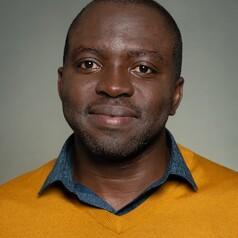
Albert Boaitey
Lecturer in Global Agri-food Supply Chains, Newcastle University
I am food and agricultural economist with an interest in food choice, carbon and animal welfare.
I studied agriculture (agricultural economics major) at the University of Ghana in Accra. I moved to Saskatoon, Canada to study for an Msc degree at the University of Saskatchewan before joining the PhD program at the Department of Resource Economics and Environmental Sociology (REES), University of Alberta (U of A), in Edmonton. While at the U of A, I was an inaugural Teaching Fellow at the Peter Lougheed Leadership College.
From Alberta, I moved down south to the University of Wisconsin-River Falls as Assistant Professor in 2017. In 2023, I joined the Applied Social Science Group at the Centre Of Rural Economy, Newcastle University, England as Lecturer (US- assistant professor rank) in global agri-food supply chains. My research focuses on understanding stakeholder incentives in the uptake of sustainable innovations in food supply chains, consumer decision-making pertaining to ethical food attributes and the design of emerging carbon offset schemes.
I enjoy teaching and learning, and have designed and taught courses in leadership, food marketing, agribusiness management, trade and supply chains, and natural resource economics.
Less ![]()
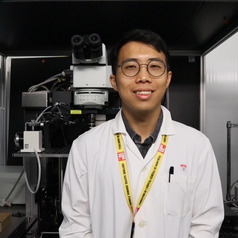
Albert HiuKa Fok
Postdoctoral Fellow in Neuroscience, McGill University
I obtained my bachelor degree of biomedical sciences in the University of Hong Kong in 2016. I started my master right away and fast-tracked to obtain my PhD in neuroscience in 2021, during which I got involved in 6 publications, in 2 of which I am the first-listed author. I received extensive training in the cutting-edge theory about neurodevelopment, cognition, memory formation and neurological diseases. From 2022 until now, I am a postdoctoral fellow at McGill University, where I continue contributing to solving the questions regarding the nervous system in its health and also diseases. I have had profound experience in experimental neuroscience, especially with transgenic rodent models and non-human primate models, as shown in my previous publications. My research covers the finest scale of molecular biology to the holistic scale such as animal behaviours. I have been successful in discovering mechanisms which control memory formation in animals with state-of-the-art in vivo imaging techniques and will continue contributing to understanding the code our brain utilises to process complex information in our everyday reality.
Less ![]()

Albert Leung
Professor and Head of School of Dentistry, Royal College of Surgeons in Ireland, RCSI University of Medicine and Health Sciences
Professor Leung is Professor of Dentistry and foundation Head of the School of Dentistry at RCSI, University of Medicine and Health Sciences.
Professor Leung leads the School of Dentistry in advancing plans to launch a Bachelor of Dental Surgery (BDS) programme in 2025, to become the first community-based undergraduate dentistry degree in Ireland.
Professor Leung served as Dean of the Faculty of Dentistry RCSI between 2020-2023, and was RCSI Vice Chancellor's Strategic Advisor in Dentistry between 2023-2024. He was Professor of Dental Education, Head of Continuing Professional Development and Programme Director of the Restorative Dental Practice Masters at University College London (UCL) Eastman Dental Institute, having successfully supervised over 100 Masters' Dissertations.
Professor Leung qualified in Dentistry (BDS) from Dundee University. He holds an MA from King’s College London, an LLM from Cardiff University, and a PhD from Portsmouth University. He has also gained Fellowship in General Dental Surgery from RCSI; Fellowships in Dental Surgery from RCS England and RCPS Glasgow; Fellowship of the College of General Dentistry, and Fellowship of the Higher Education Academy.
He has achieved international distinction including receipt of the Association for Dental Education (ADEE) Excellence in Dental Education Mature Career Award – one of the highest international accolades in dental education.
Less ![]()
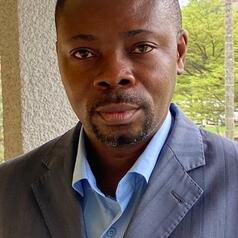
Albert Malukisa Nkuku
Associate researcher, University of Antwerp
I am Dean of the Faculty of Political Science at the Catholic University of Congo and an Associate Researcher at the University of Antwerp. My research focuses on urban governance, police sector reform and informal economy in the Democratic Republic of Congo. My research can be accessed here: https://repository.uantwerpen.be/desktop/irua
Less ![]()
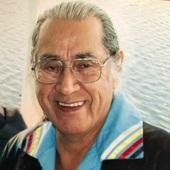

Albert Fox Cahn
Practitioner-in-Residence, Information Law Institute, New York University
Albert Fox Cahn is the Surveillance Technology Oversight Project’s (S.T.O.P.’s) founder and executive director. He is also a Practitioner-in-Residence at N.Y.U Law School’s Information Law Institute and a fellow at the Harvard Kennedy School’s Carr Center For Human Rights Policy, Yale Law School’s Information Society Project, Ashoka, and TED.
As a lawyer, technologist, and activist, Albert has become a leading voice on how to govern and build the technologies of the future. He started S.T.O.P. with the belief that local surveillance is an unprecedented threat to public safety, equity, and democracy.
Albert is a frequent commentator, with more than 100 articles in the New York Times, Boston Globe, Guardian, WIRED, Slate, NBC Think, Newsweek, and other publications. His TED Talk has been viewed hundreds of thousands of times. He frequently lectures at leading universities and speaks at leading technology governance forums. Albert previously served as an associate at Weil, Gotshal & Manges LLP, where he advised Fortune 50 companies on technology policy, antitrust law, and consumer privacy.
Albert also serves on the New York Immigration Coalition’s Immigrant Leaders Council, IEEE Standards Association P3119 AI Procurement Working Group, and is an editorial board member for the Anthem Ethics of Personal Data Collection. He was also a founding member of the the New York Immigrant Freedom Fund’s Advisory Council. Albert received his J.D., cum laude, from Harvard Law School (where he was an editor of the Harvard Law & Policy Review), and his B.A. in Politics and Philosophy from Brandeis University.
Less ![]()
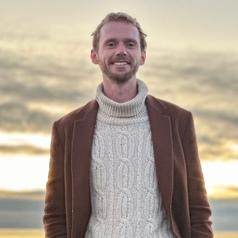
Albert Van Wijngaarden
PhD Candidate, Scott Polar Research Institute, University of Cambridge
I am a PhD candidate at the Scott Polar Research Institute, University of Cambridge. My research focusses on the social and ethical questions that arise alongside attempts to study ideas to artificially intervene in elements of the climate system in the Polar regions: Who is included such projects, and who isn't? What kind of questions are being asked, and how are uncertainties and risks treated? And how do these ideas relate to each other, and to more conventional adaptation or mitigation schemes?
My current academic journey officially takes place within the bounds of a Geography department, but I have a background that spans various social sciences and humanities disciplines, and have also made some forays into the earth sciences.
Less ![]()

Alberta SJ van der Watt
Researcher, Stellenbosch University
I am an interdisciplinary researcher. While my main area of interest is posttraumatic stress symptoms and interpersonal relationships, I have also conducted research on mood and anxiety disorders (longitudinal data), traditional and faith healers, adolescents’ experiences of a posttraumatic stress disorder intervention, and HIV and neurocognition (longitudinal data). I have conducted research using both quantitative and qualitative methods, including functional magnetic resonance imaging. I am currently working on research projects focusing on continuous traumatic stress among adolescent-parent dyads; neurocognition trajectories in women with compared to women without HIV and the role trauma plays in this trajectory; and the moderating role of attachment in breakup distress among emerging adults following a romantic relationship dissolution.
I recently obtained my PhD in psychiatry from Stellenbosch University. However, my background is in psychology, where I obtained a master's in psychology by thesis (focusing on women's experience of being single). My undergraduate degree was BComm Psychology (also from Stellenbosch University). I also have a 3-year diploma in fashion design.
Less ![]()


Alberto Mirisola
Associate Professor of Social Psychology, University of Palermo
Alberto Mirisola is an Associate Professor of Social Psychology at the University of Palermo. His current research focuses on political ideologies and worldviews as external sources of compensatory control, social cognition, and the social and psychological consequences of criminal organizations’ influence.
Less ![]()

Alberto Molina Pérez
Alberto Molina Pérez es investigador postdoctoral en el Instituto de Estudios Sociales Avanzados (IESA-CSIC). Anteriormente, fue investigador "Juan de la Cierva Formación" en la Universidad de Granada. Se doctoró en 2017 en Filosofía por la Universidad Autónoma de Madrid. Realizó estancias de investigación en las universidades de Paris 1 Panthéon-Sorbonne (Francia) y de Lausanne (Suiza). Sus principales áreas de investigación son los modelos de consentimiento para la donación de órganos cadavéricos y los criterios de determinación de la muerte. En el primer caso, se trata de entender cómo funcionan los modelos de consentimiento tanto en la ley como en la práctica, especialmente cuando se tienen en cuenta los deseos de los familiares, y de explorar el conocimiento y las actitudes del público hacia dichos modelos. En el segundo caso, se trata de analizar los criterios médicos y legales de determinación de la muerte desde una perspectiva epistemológica y, en particular, de analizar el uso del concepto de función en dichos criterios.
Less ![]()

Alberto Pirrera
Professor of Nonlinear Structural Mechanics, University of Bristol
Alberto Pirrera is an Associate Professor of Nonlinear Structural Mechanics at the Department of Aerospace Engineering of the University of Bristol, where he has been a faculty member since 2013, holding an EPSRC Early Career Research Fellowship (2015-2020), and where he completed his PhD in 2011. Before that, Alberto obtained his Master’s in Aerospace Engineering from Università degli Studi di Palermo, in Italy. His academic home is the Bristol Composites Institute (ACCIS), where he is a co-director of the EPSRC Centre for Doctoral Training in Composites Science, Engineering and Manufacturing. A modeller and a theoretician specialising in engineering science, Alberto’s research interests lie in the area of structural analysis, design and optimisation. In recent years, he has focused on well-behaved nonlinear structures, on morphing, adaptive and shape changing devices and on wind turbine blades.
Research Interests & Expertise:
• Structural & Solid Mechanics,
• Nonlinear Mechanics,
• Structural Stability,
• Computational Mechanics,
• Morphing and Adaptive Structures,
• Composite Structures,
• Wind Turbine Blade Structures.
Less ![]()
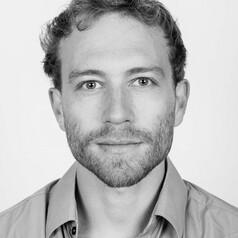
Alberto Prati
Assistant professor, UCL
Alberto Prati is an assistant professor in economics at the University College London, where he teaches economic psychology. He also serves as a research fellow at the University of Oxford and as an associate researcher at the London School of Economics.
He works on interdisciplinary issues related to improving wellbeing measurement, understanding how people form opinions, and promoting sustainability.
Less ![]()

Alberto Fijo Cortés
Profesor de Narrativa audiovisual e Historia del Cine, Universidad Villanueva
Doctor en Artes Visuales. Profesor de Narrativa Audiovisual e Historia del Cine en los grados de Comunicación y Publicidad de la Universidad Villanueva.
Escritor cinematográfico. Dirige desde su fundación en 1998, FILA SIETE, revista de crítica de cine, series y cultura audiovisual y su portal www.filasiete.com
Autor o coautor de veinte libros sobre cine. Entre ellos: «El Western renacido del siglo XXI» (2023), “El cine agraciado de Terrence Malick” (2021), el estudio más completo y actualizado sobre el director norteamericano y “A 120. Un viaje por las grandes películas estrenadas entre 1900 y 2020” (2020). Coordinador y autor de la colección “Cine pensado” siete libros con estudios de las películas más interesantes de cada año (2015-2021).
Desde 1999 trabaja en la agencia Aceprensa, donde ha sido jefe de la sección de cine, cultura y artes. Miembro del Círculo de Escritores Cinematográficos.
Less ![]()
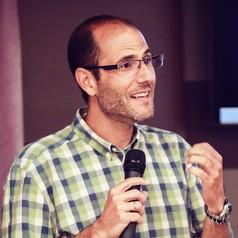
Alberto Nájera López
Profesor de Radiología y Medicina Física en la Facultad de Medicina de Albacete. Coordinador de la Unidad de Cultura Científica y de la Innovación (UCLMdivulga), Universidad de Castilla-La Mancha
Licenciado en Física por la Universidad de Salamanca (2000) y doctor en Neurociencias por la Universidad de Salamanca (2005). Desde 2001 es profesor de la Facultad de Medicina de Albacete de la Universidad de Castilla-La Mancha (UCLM), tras pasar por la empresa privada en una multinacional tecnológica.
En su tesina estudió la relación entre mortalidad y contaminación atmosférica (con la que obtuvo el Grado de Salamanca) y, aunque en su tesis desarrolló un modelo computacional que reproducía la respuesta de la membrana basilar en la cóclea, esencial en el proceso auditivo, desde 2009 investiga y divulga sobre campos electromagnéticos de radiofrecuencia y sus posibles efectos sobre la salud.
Es socio de las sociedades científicas Bioelectromagnetic Society (BEMS) y de la European Bioelectromagnetic Association (EBEA). Es coordinador de la Unidad de Cultura Científica y de la Innovación de la UCLM (UCLMdivulga) y vocal del Comité Científico Asesor en Radiofrecuencias y Salud (CCARS) del Colegio Oficial de Ingenieros de Telecomunicación (COIT). Además, es miembro de la Junta Directiva de la Asociación de Profesores de Radiología y Medicina Física (APURF), socio de la Asociación Española de Comunicación Científica (AECC), del Círculo Escéptico y de la Sociedad para el Avance para el avance del Pensamiento Crítico (ARP-SAPC).
Less ![]()
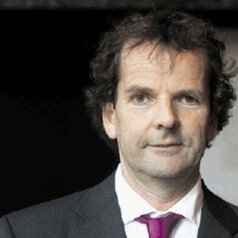
Aldert Vrij
Professor of Social Psychology, University of Portsmouth
My main research interest is deception, resulting in more than 600 publications and more than 30,000 citations (H-factor 87). I received grants from British Research Councils, Trusts and Foundations, Insurers, Federal Bureau of Investigation and American, British, Dutch, and Singapore Governments, totalling > $11,500,000. An overview article of 100 years deception research published in Applied Cognitive Psychology in 2022 (doi: 10.1002/acp.3971) showed that I have the most publications and the most citations in the field.
I work closely with practitioners (police, security services and insurers) in terms of conducting research and disseminating its findings. My book Detecting Lies and Deceit: Pitfalls and Opportunities (published by Wiley) is a comprehensive overview of research into (non)verbal and physiological deception and lie detection.
In 2016 I received the International Investigative Interviewing Research Group (iiiRG) Lifetime Achievement Award in recognition of my significant contribution to investigative interviewing.
I was awarded my PhD in 1991 at the Vrije Universiteit in Amsterdam (the Netherlands) and came to the UK in 1994, when I joined the Psychology Department as a Senior Lecturer. In 1996 I was promoted to Reader and in 2000 to my current position: Professor of Applied Social Psychology.
Less ![]()
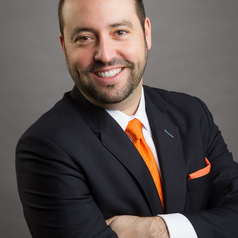
Aldo Musacchio
Professor of Management and Economics, Brandeis University
Aldo Musacchio is a Professor of Management and Economics at the Brandeis International Business School and a Faculty Research Associate at the National Bureau of Economic Research (NBER). Prior to joining Brandeis he was an Associate Professor and Marvin Bower Fellow at the Harvard Business School. He is currently a lead economic consultant on state-owned enterprises on several projects at the Inter-American Development Bank and the World Bank. His current work focuses on tracking and facilitating the energy transition in large state-owned enterprises.
Less ![]()
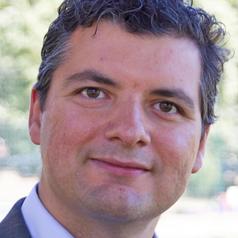
Aldo Zammit Borda
Currently Senior Lecturer in International Law at Anglia Ruskin University. My areas of specialization include Public International Law and International Criminal Law.
Less ![]()
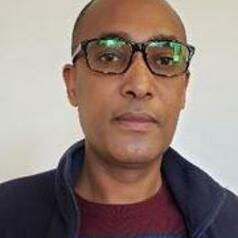
Alebachew Kemisso Haybano
Assistant Professor and a faculty in the Center for Comparative Education and Policy Studies, Addis Ababa University
lebachew Kemisso Haybano is an Assistant Professor and a faculty in the Center for Comparative Education and Policy Studies (CCEPS) at Addis Ababa University (AAU), Ethiopia. He has got PhD in International and Comparative Education from Addis Ababa University in Ethiopia. His research focuses on how national education systems deal with issues of identity development and the integration/inclusion of refugees. He has consulted with various organizations including Danish Refugee Council, Jesuit Refugee Service, UNICEF, Education International, and UNHCR, among others, on studies related to refugees in across sub-Saharan Africa. Alebachew has extensive experience working with refugees in the camps and urban areas of Ethiopia, and excellent insider knowledge of the refugee operation and refugee management systems in Ethiopia. Alebachew’s postdoctoral fellowship in the Center for African Studies focuses on studying the promises of Ethiopia’s new policy for inclusion of refugees into national education systems and the challenges of its local implementation using evidences from the Gambella region in the Western border of Ethiopia. His research project aims to explain how historical experiences of refugee inclusion/integration inform the implementation of the new policy; understand how diverse meanings of inclusion and different approaches for inclusion affect the implementation of the new policy; analyze hopes and fears of refugees and host communities related to the implementation of the new policy; and investigate existing capacities and incentives in the Ethiopian education system that can facilitate or hinder implementation of the new policy for inclusion of refugees into national education system.
Less ![]()


Alec Zuo
Associate Professor, School of Economics and Public Policy, University of Adelaide
A/Prof. Alec Zuo is an applied economist specialising in agricultural, environmental, and resource economics. Alec’s research has addressed issues and questions that are fundamental to UN World Development Goals and Australian National Research Priorities. His research has contributed significantly to understanding the impact of climate change and resources on irrigation farming, farmer adaptation strategies, and market-based instruments for water resource management. His research has been published in leading international journals (e.g., Global Environment Change, American Journal of Agricultural Economics, European Review of Agricultural Economics, Energy Economics, etc.) and he has collaboration with researchers from over 20 organisations worldwide on agricultural, resource, environment and development issues across 11 countries in four continents. Alec has substantial experience in initiating and managing large research projects. His research has been funded by the Australian Research Council (currently an ARC Future Fellow), the Australian National Commission for UNESCO, the National Climate Change Adaptation Research Facility, the federal Department of Agriculture, Fisheries and Forestry, the Australian Centre for International Agricultural Research, the Australian Consumer & Competition Commission, and the Murray Darling Basin Authority.
Less ![]()

Alecia Simmonds
Lecturer, Faculty of Law, University of Technology Sydney
Dr Alecia Simmonds is an inter-disciplinary scholar in law and history. She has published in national and international journals on the relationship between intimacy, imperialism and law in Australia and the Pacific. Her current postdoctoral research at UTS examines the legal regulation of love through the lens of breach of promise of marriage cases from 1824 to 1975. Dr Simmonds also writes columns and articles for the popular press, including Fairfax Digital and her book Wild Man: A True Story of a Police Killing Mental Illness and the Law won the 2016 Davitt prize for best crime non-fiction.
Less ![]()
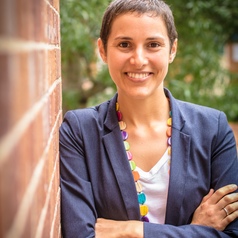
Aleena Wojcieszek
Clinical Perinatal Epidemiologist, The University of Queensland
Aleena is a clinical perinatal epidemiologist and science communicator. She has expertise in synthesising evidence and translating it into clinical practice guidelines, implementation resources, and advocacy and communications materials. Aleena works as an independent consultant who partners with research institutes and national and international health bodies to improve maternal and newborn health at the global level. She has worked with the World Health Organization (WHO), United Nations Children’s Fund (UNICEF), United Nations Population Fund (UNFPA), US Agency for International Development (USAID), and various professional organisations. She has also worked with the International Stillbirth Alliance (ISA), including as the lead writer of “Preventing and addressing stillbirths along the continuum of care: a global advocacy and implementation guide.” Aleena is also an honorary senior research fellow at The University of Queensland Faculty of Medicine, working with the Centre of Research Excellence in Stillbirth.
Less ![]()
- Market Data



















